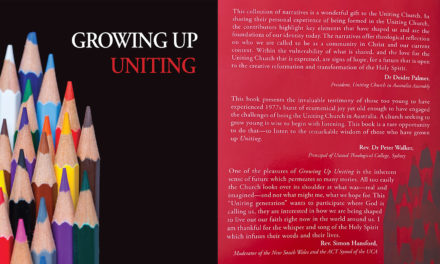They devoted themselves to the apostles’ teaching and fellowship, to the breaking of bread and the prayers… they would sell their possessions and goods and distribute the proceeds… Day by day, as they spent much time together in the temple, they broke bread at home and ate their food with glad and generous hearts, praising God…
These familiar verses from Acts 2 speak of a fledging Christian church marked by the distinctiveness of its communal life. From the first day, people cross religious, cultural and language boundaries to bond in friendship. The spiritual revolution of Pentecost is as much about doing as it is about being. The evidence of faith is transformed lives. The power of the Spirit is seen in the fruits of joy, generosity, service, reconciliation, compassion and peace-making. Praising God and practicing faith.
Growing in faith involves head, heart and hands. Discipleship certainly involves belief, yet it is not simply about cognitive assent to theological propositions. If a disciples is truly an apprentice (the meaning of the Greek work mathetes), the discipleship is learned ‘on the job’. The Christian life is discovered through living it in the company of others.
Over the last thirty years there has been great interest in the recovery of Christian practices as the basis for growing disciples – formation involves ‘doing’ what disciples do and education involves learning the ‘why’. In the book of Acts, we read of discipleship being practiced in the Temple, in people’s homes, and in the world – the street, the market place, in prison. Later, converts were required to learn the Way before they were baptised into the faith.
Christian writers such as Craig Dykstra, Dorothy Bass, Kenda Creasy Dean and Ron Foster, David Augsburger and Diana Butler Bass have explored how growing as Christians involves learning the Way of Jesus. More recently, Robert Schnase, John Roberto and Andrew Roberts (Holy Habits) have offered their own interpretations. Their lists of Christian practices are similar and different.
Dean and Foster: communion: bread-breaking, compassion: pain taking; teaching and nurturing: wave-making, witness: claim-staking, dehabituation: rhythm breaking, worship: praise making
Schnase: extravagant generosity, intentional faith development, risk-taking mission and service, radical hospitality, passionate worship
Bass: shaping communities, household economics, healing, testimony, keeping sabbath, singing our lives, discernment, honouring the body, forgiveness, dying well, saying yes and saying no
Roger Owens says that practices are not imitation of Christ but embodied participation in his ministry and mission.
So what might it mean for congregational faith formation to be oriented around Christian practice, where believing and behaving are explored together in the context of belonging.
Here are some places to begin exploring:
Formation in Christian Practices – John Roberto (Lifelong Faith, USA)
Faith Practices Curriculum – Pilgrim Press (United Church of Christ, USA)
Practicing Our Faith video series on Youtube
Five Practices of Fruitful Congregations – available from Mediacom Education
Holy Habits – Andrew Roberts (Methodist Church, UK) – available from Mediacom Education and Koorong
Here’s my own list of eight practices that I explore in teaching and workshops.
Craig Mitchell






